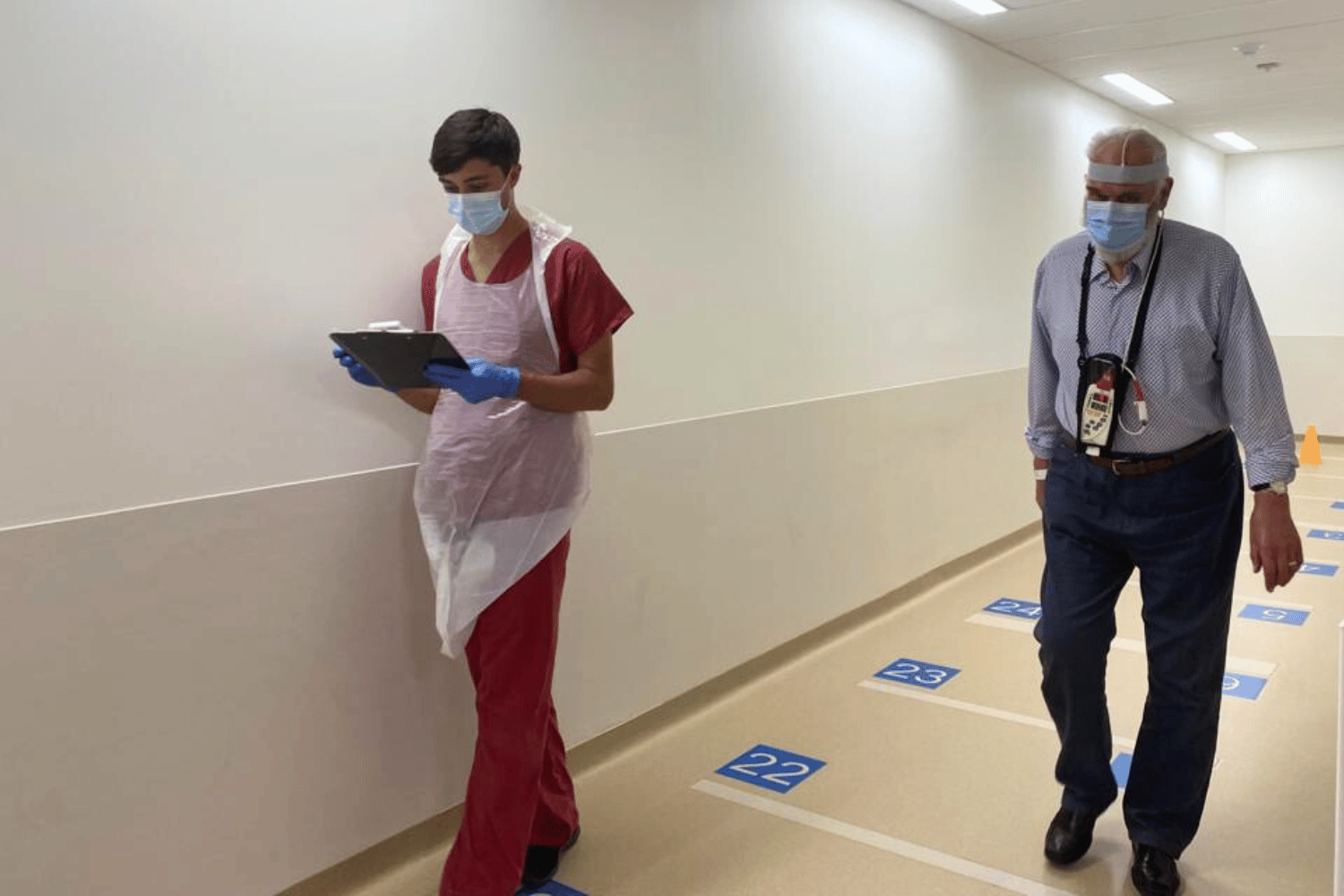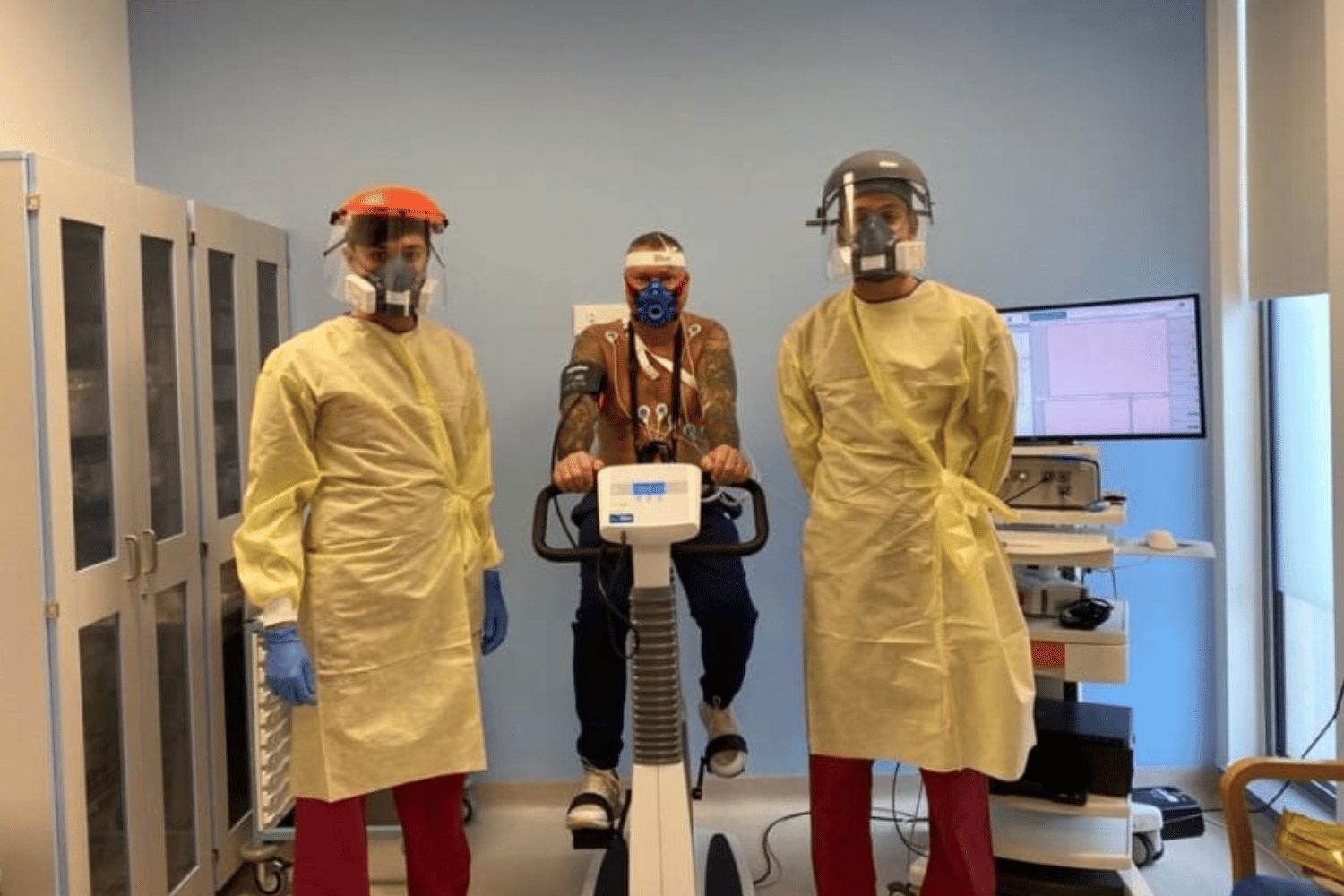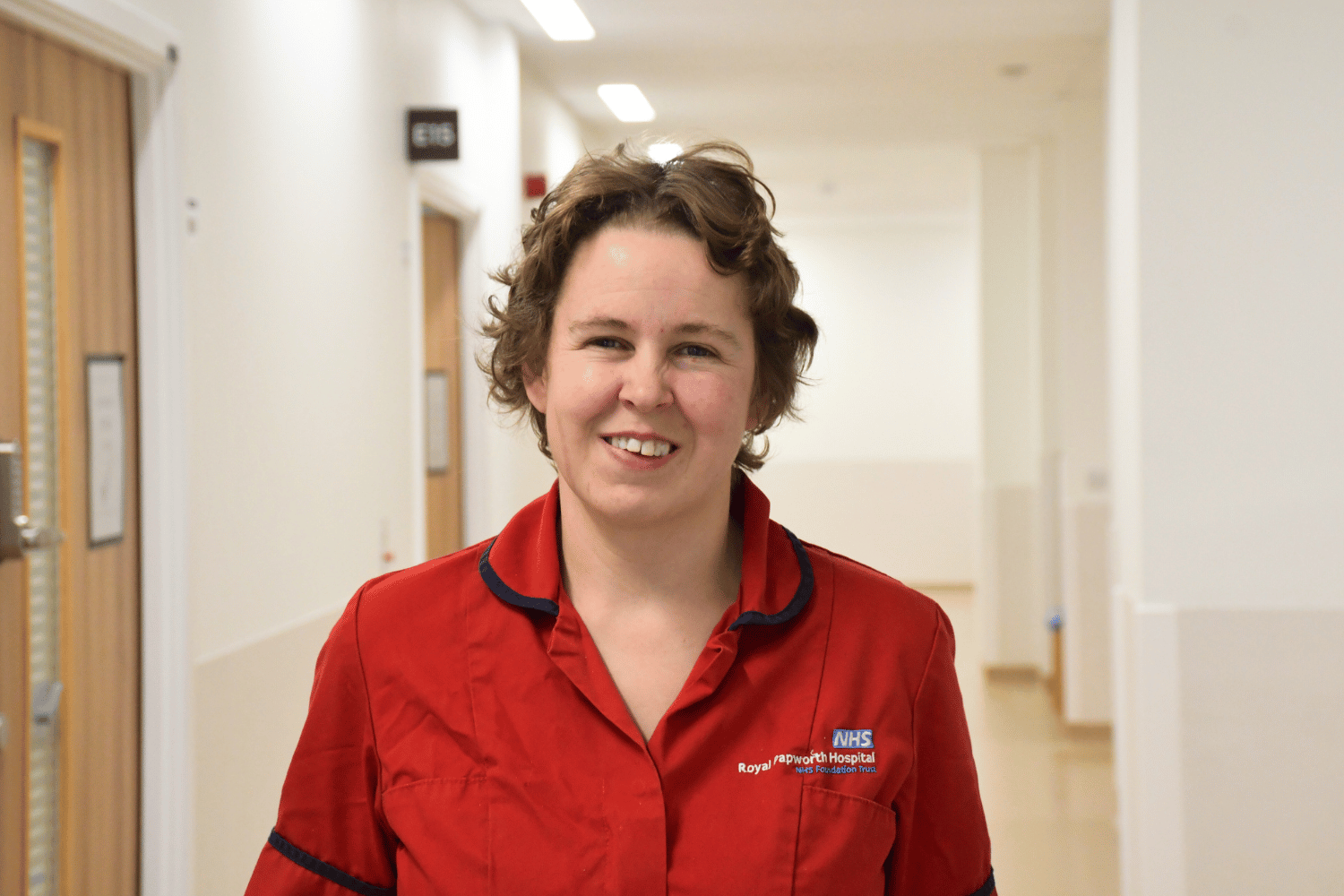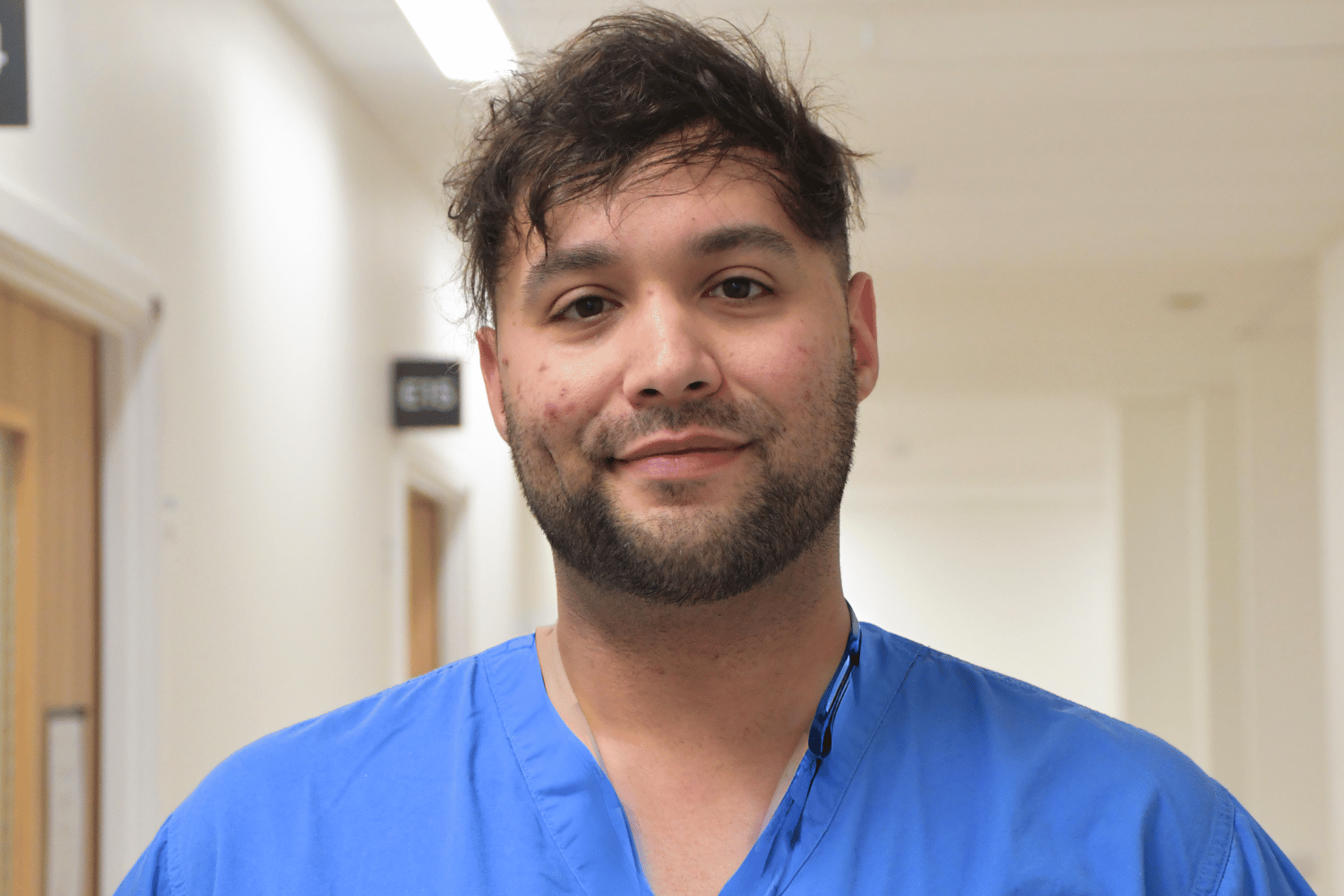About our team
Respiratory physiologists are vital in diagnosing and monitoring lung disease.
At our hospital you will perform a wide range of routine and highly complex diagnostic tests to assess all aspects of a patient’s lung function.
The tests can be quite challenging for patients, especially if they have significant symptoms such as breathlessness. Our team works especially hard to put patients at ease while performing their tests in order to get the highest quality results.
Communication is key as well as an ability to build a strong rapport within a short timeframe. It is a very satisfying role and extremely important part of the patient’s journey at Royal Papworth Hospital.
Who we help and support
Our respiratory physiologists see patients from all specialisms across the hospital, from respiratory to cardiac to surgical.
For new patients who may be unsure of their diagnosis, we perform lung function tests to aid the clinician in determining a diagnosis.
For those patients who have a confirmed diagnosis, we will either monitor their lungs at regular intervals and/or monitor their response to treatment.
There may be patients who have both respiratory and cardiac disease and so we will undertake assessments to determine which is causing the most burden to their health. This helps the clinician to begin the most appropriate treatment.
We also see patients who may need surgery. We determine whether it is the right time for the surgery to take place. If surgery is suggested, then we perform assessments to guide the clinicians and the patients as to the predicted risk for their procedure.

A six-minute walk test in our bespoke corridor with metre-markers
All patients will either be seen as an outpatient, inpatient or as a day case. Using our mobile equipment, we will see patients in: our state-of-the-art heart and lung function department on the ground floor of our hospital; in the adjacent clinic area; on the nearby day ward; or on the inpatient wards.
We also see patients remotely by monitoring them performing one of the tests at home and then sending this information to the clinician. This benefits patients who may have difficulties in travelling to hospital and helps address health inequalities in the NHS.
Training and development
We provide learning opportunities for staff within the department but also other healthcare professionals who would like to better understand respiratory physiology. These can be from within the trust or from external organisations.
Many of our new staff undertake the Association for Respiratory Technology & Physiology (ARTP) professional qualifications. This allows individuals to demonstrate they perform lung function tests to national quality standards. Once completed they receive their certificates at the ARTP annual conference.

Conducting a cardiopulmonary exercise test
The ARTP conference is attended by many people from the department as it provides information on current best practice as well as informative talks on many areas of respiratory and sleep medicine.
All staff are encouraged to conduct physiology research, with the opportunity to publish manuscripts in peer-reviewed journals.
They also have the opportunity to submit their work as an abstract for presentation at international congresses, such as the European Respiratory Society (ERS). This has seen us travel all over Europe, from as far north as Stockholm to as far south as Barcelona and everywhere in between. This is a great opportunity and members of the team that have been come back even more enthused about their role and future research opportunities.
We also support community practitioners wishing to perform a single spirometry through a two-day dedicated course being run through the our new research facility.
Students and apprentices
We offer support to students undergoing their Scientist Training Programme (STP), which is a master’s level qualification, as well as those undertaking an undergraduate degree.
We have students and visitors from all over the country and the world, with visits from students at Ulster University as well as a visiting professor from China.
Staff case studies
Lucy Robertson, Senior Clinical Respiratory Physiologist
"I have been working here for nine years. I enjoy my job as I get to work in a friendly team and often work alongside other teams within the trust.
"Performing lung function tests on patients is very interesting from a physiological point of view, but also in the way that I get to meet and talk to a range of patients from different backgrounds and deliver lung function results which can help with their treatment.
"I am also involved in research and have managed to present at a variety of conferences and have been published in medical respiratory journals. Clinical research trials are critical for advancing future treatments for the future."
William Shotton, Clinical Respiratory Physiologist
"I really enjoy working in respiratory physiology at Royal Papworth Hospital.
"The tests are fascinating and are more varied than you would imagine! As a respiratory physiologist you have a crucial role in bringing out the best performance of patients to get the most accurate and reliable data.
"It's a such supportive environment. It's the first job since leaving university where I feel encouraged and that my wellbeing is valued. There are lots of opportunities to develop skills and perform a variety of specialist tests.”


